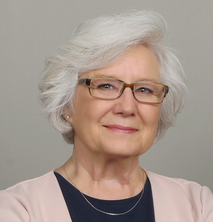|
by Terry Magness I received a strong message growing up that I could do nothing right. As an adult, this belief led me to become a major people pleasing procrastinator. For an example, as a young married, I took art classes...for twelve years, and probably produced as many paintings. My work never reached the unattainable standard I set for myself. I continued painting on my pieces even after they were framed. A couple of decades ago I wrote two books. The first book took five years to construct, and the second, seven years. Why? Because I continually rewrote them! In my eyes, the books were never good enough for anyone to appreciate. Blogging is something I have had on the radar for years. However, the voices in my head as to why not to write have had the final say. It was confusing. While involved in ministry in other countries, I experienced a confidence and boldness; but when I return to my own turf, I found fear waiting for me. Something was wrong. I did not realize how paralyzing fear could be even to a servant of the Lord. As a pastoral counselor, I was unprepared for the kinds of manipulation I encountered. I found it hard to say "no." I need to prove myself, right? Besides, I didn't want to hurt anyone's feelings or to have anyone angry with me. I thought if I demonstrate God's love by being there for people, it would help them find and know the love of Jesus. That was good intent, but because setting boundaries was difficult for me, I allowed myself to be swallowed up by the needs of others to my own detriment. The inevitable eventually happened. I experienced major burnout. I functioned superficially. My faith and trust in God was intact, but I was unable to relate to people more than skin deep. I was empty. I stepped down from my church staff position as pastoral counselor. None of us can afford to ignore the signals. Fear in any form must be acknowledged and faced or it may well be our demise. Picture a bullfighter grasping the large ring in the bull's nose. That ring gives the bullfighter a distinct advantage. By that seemingly insignificant ring, he can conceivably pull a 500-pound bull to the ground onto his knees. Is fear the ring in your nose? The Bible says, as followers of Christ, Satan is an enemy who seeks to stop us from accomplishing what God has called us to do. As long as we have a ring in our nose, Satan has the advantage. We can be faithful, powerful Christians, but the enemy will look for and find our weakness. He will target that fear, grab hold, and bring us down. Once he brings us to our knees, Satan then whispers lies in our ear. His lies convince us we cannot be what God created us to be or do what He called us to do. He accuses us again and again of our failures until we believe we cannot succeed. We lose confidence, our sense of self-worth, and our desire to try. Recognizing fear for what it is and how it works in us is half the battle. I finally recognized the fear of man and the fear of failure that had plagued me for years. The recognition gave me courage to change. This was the first step toward ridding myself of fear, and obtaining victory. Understanding what had happened and why, I began praying and asking God to deliver me from fear, to make me bold as a lion and harmless as a dove. Right away I saw small encouraging signs of answered prayers. Over time fear retreated. Boldness to be who I am to speak the truth in love began growing daily. Even though fear confronts us from time to time, we know Who we believe! 1 Thessalonians 5:24 ESV tells us, "He who calls you is faithful; he will surely do it." He gives us victory! And guess what...I'm writing!
1 Comment
by Nora Ross Since the early church, people have had disagreements, which caused them to separate. Paul and Barnabas worked together to bring the message of the Gospel to many. They decided to return to areas that had been very successful. Barnabas wanted Mark to accompany them and Paul disagreed. There was such disagreement Paul and Barnabas separated. Paul took Silas and Barnabas took John Mark. As a result of this separation, the Gospel was spread to a greater area and number of people. This passage may sound familiar to you. You may know it from the personal experience of people leaving your church or ministry. People you have worked with for years have left. Maybe, they were there to move you into your home or parsonage when you arrived. Your families have grown together. You are there for them during their triumphs and losses. They are there for you in the good and the bad. You consider them your best friends. You wonder if Barnabas and Paul had this type of relationship. When your friends and partners in ministry leave, it hurts. There have been some who have left without even saying goodbye. There are others you wish would have only said, “Goodbye.” It seems Paul and Barnabas parted on terms that helped them both to succeed in ministry. Paul even seems to have forgiven Mark and speaks favorably of both in his later writings. There was a time when a family member did something that made the local news. As my husband tried to read the prepared statement, the church wept with us. They followed the request not to discuss the situation. Many of them asked how they could help. When they asked to bring meals and we refused, they delivered them anyway. The newspaper printed our address and people attacked our home. It was only pellet guns; but it was frightening. People from our church offered to come and sit on our porch and protect us. No one left the church as a result of that situation. However, we have had people leave over misunderstood statements and gossip. It seems gossip leads to feelings of entitlement. Everything we know as a Christian is thrown out with the hurt feelings and the need to confide in others. We spiral into a frenzy that becomes difficult to overcome. As pastors and leaders, we need to be careful not to partake in the “prayer request” mentality that says I can talk about this to this person and this person and that person whether they are a part of the problem, or a part of the solution. We are the leaders and should lead by example. We need to question our motives as we share information and listen to information. As we receive and give information, we need to think about whether we would want a member of our congregation hearing or saying this. If it is not appropriate for them, it is not appropriate for us. A lead pastor once told us that people are as loyal as the last thing you did for them. If we had lived by that choice nugget of pastoral wisdom, we would no longer be in ministry. We would have burned out trying to keep everyone loyal; or, we would have become bitter because we felt we had to give to keep people loyal to us. We minister as God leads us, not with the thoughts of who will leave next, or wondering how long someone will stay. As we live righteously with servants’ hearts, God will provide for us and for those who leave, just as He did for Paul and Barnabas.
|
This is a safe place for ministry wives and women ministers to be renewed, resourced, and build relationships with others just like you.
Search Our Blog Archives by Keyword Below
Categories
All
Archives
June 2024
|
Proudly powered by Weebly





